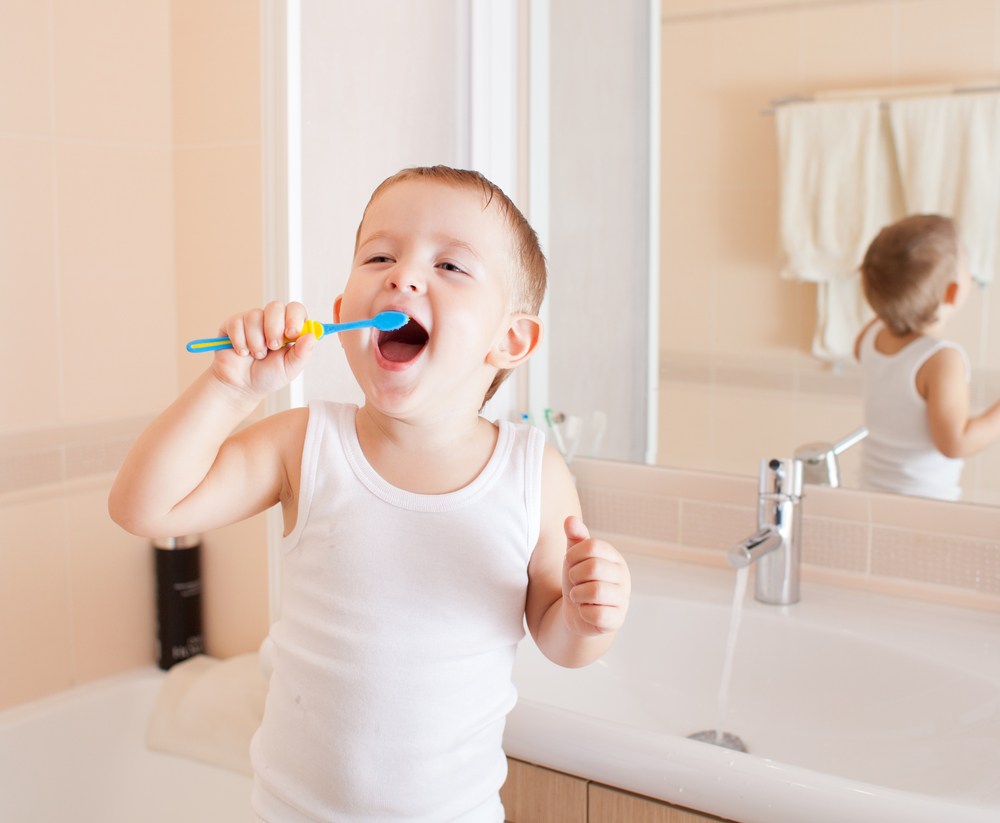Oral Hygiene for Sydney's Babies and Toddlers
Teach them the best ways to maintain oral hygiene young and they should be on track to a swell looking smile in years to come.
Even before the first pearly whites pop up in your baby's mouth, it's important to be practicing good oral hygiene. I know, it seems strange – but oral hygiene doesn't start and end with the teeth, it involves the entire mouth. Babies and toddlers aren't granted immunity because of age or adorableness – in fact, they're at just as much risk of dental decay as an older child or adult. Get in with good oral hygiene habits early to ensure your child has healthy teeth for life.
Here are some of our tips for achieving great oral hygiene:
Brushing teeth for babies
Prior to the first teeth appearing, gently wipe your child's gums with a moistened soft cloth once a day. Once the first teeth have erupted, begin using a toothbrush specifically designed for babies and wash with plain water once a day, after the last feed of the day.
When your child reaches three years of age and is more accustomed to brushing, introduce brushing teeth twice a day – in the morning after their breakfast and in the evening before bed.
Introduce children's toothpaste at about 18 months of age – just a smear is needed. Encourage your child to spit out the excess toothpaste but, if they're not able to do that straight away, simply continue using a smear of children's toothpaste and wipe their mouth with a washer – the point that they will learn to spit toothpaste out will vary from child to child.
Finally (and most importantly), store all toothpastes out of reach of children. Some children grow especially fond of the taste of toothpaste and will attempt to eat it at any given chance, which can cause dental fluorosis.
Teaching children how to brush their own teeth
It is around the ages of four to five that children should begin learning how to brush and care for their own teeth, however, you will still need to supervise and assist their brushing until around eight years of age, by which time your child should have developed the skills to clean their teeth independently.
Aim to brush for about two minutes, twice a day. Some children may resist having their teeth brushed for this long, but it is important to get this happening in place early to ensure they will carry it with them to adulthood.
Remember to replace your child's toothbrush every three months or whenever the bristles appear frayed to maintain optimal oral hygiene.
If your child really is not enjoying the whole process of learning good oral hygiene, try one or more of the following suggestions:
- Offer a reward if your child allows you to brush their teeth for two minutes.
- Make tooth brushing and flossing as fun as possible, whether you incorporate singing songs or playing a short video as a treat.
- Make an emphasis on how important oral hygiene is to you – children tend to imitate their parents behaviours, so if tooth brushing is important to you, it will become important to them.


